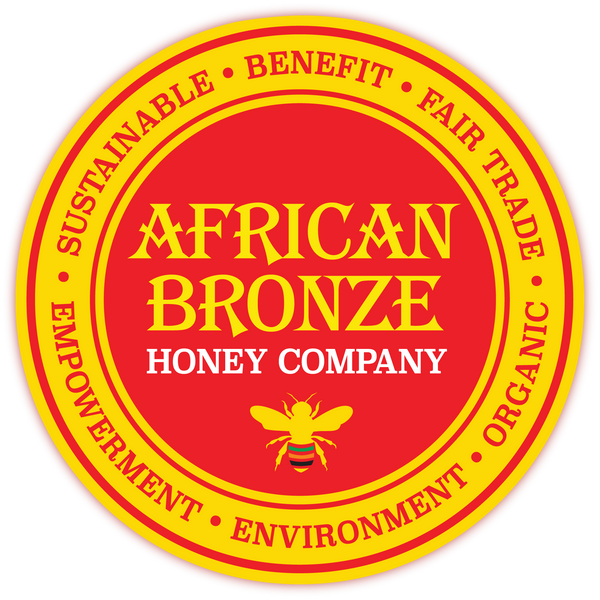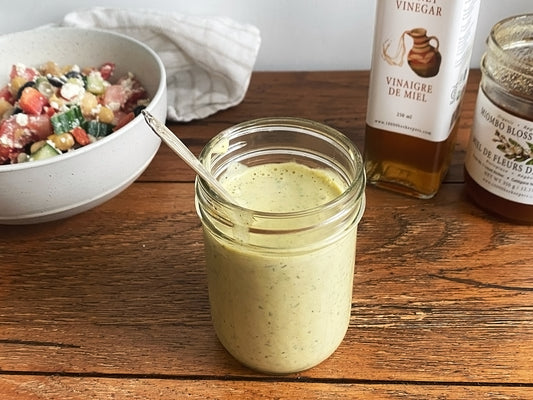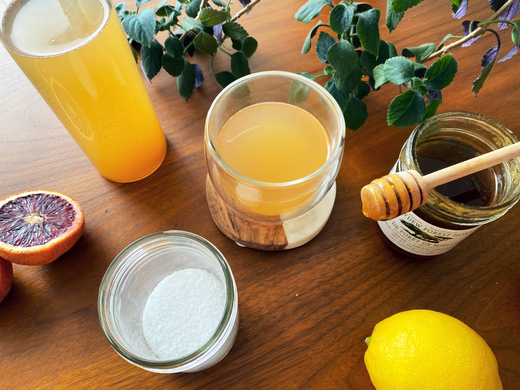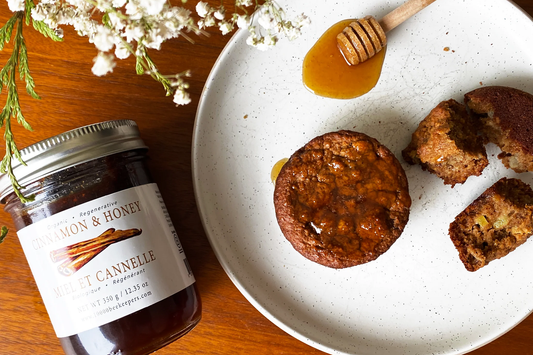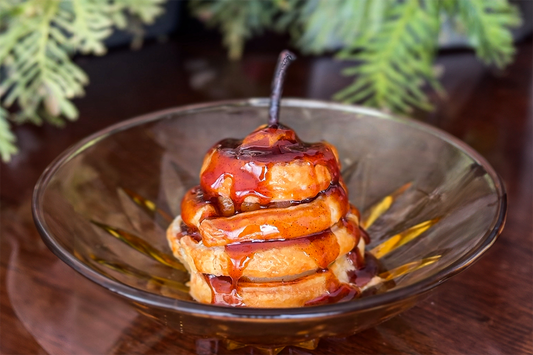More about our African Forest Honey
Share
We came across a wonderful article on Serious Eats last week called “How to taste (and fall in love with) Raw Honey by Jacqueline Raposo. This article is jam packed with great information about all types of honey and talks about African honey at the end. We’d like to add to the discussion on the African forest honey side of things.
We lived in Zimbabwe, in southern Africa, for many years and had the opportunity to sample LOTS of ‘bush honey’, some of which had a distinctly smoky flavour. Like Jacqueline’s warning, I remember being told to be careful of honey that tasted like that — the truth is, honey that tastes like that is likely ‘poached’ honey.
It starts like this: if someone in the forest finds a hive of wild bees they claim it and begin harvesting. However, that is not an easy task. Usually these hives are inside a hollow tree and extremely difficult to get at. And don’t forget, African bees are very protective of their home and will fight like… well, like ‘killer bees’!
Given the risks, the honey hunters will set a large smoky fire that results in killing the entire hive. It also imparts a smoky flavour to the honey. Sometimes that smoke has a chemical or diesel taste. Not to put too fine a point on it, but the containers that are used to carry the honey back can be old pails, or jerry cans that have been used for… well, you get the idea. So yes, some African bush honey can taste like smoke and diesel, however…
Our partner in Zambia, Dan Ball of Forest Fruits trains local forest residents (more than 6000 so far) how to be beekeepers and stewards of their forest. These beekeepers make hives out of hollow logs and bark that are used for 20 years or more. They place the hives high in the forest canopy and wait for wild bees to move in. This can take many months for a hive to establish itself. So the beekeepers monitor and protect their hives diligently… remember, they are running a sustainable business!
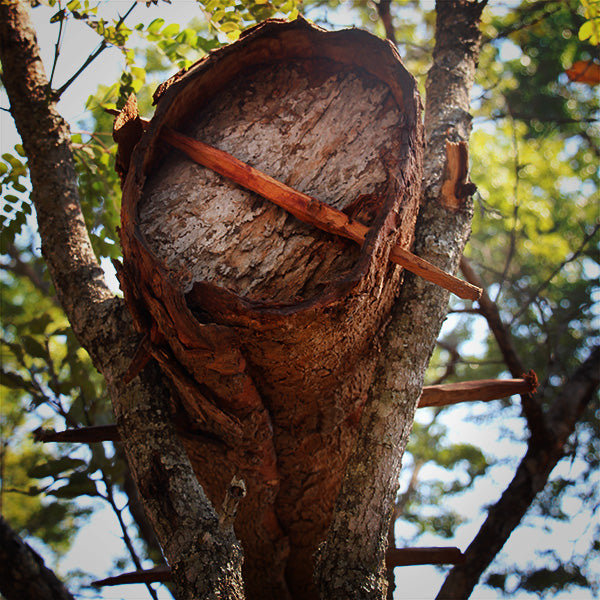
When it comes time to harvest, they use a small torch of dried grass and leaves to make a smudge, the same way domestic beekeepers do. A couple of puffs are usually enough. The wild bees are afraid of fire and immediately leave the hive long enough for the beekeepers to collect a portion of the honey.
Dan’s project teaches the beekeepers good environmental practice as well as safety and hygiene. The project also provides clean, sealable buckets for the transport of the honey. Every bucket of honey is inspected, and if it is suspected to be from a ‘poached’ source it is rejected and not purchased. If it smells of smoke it is rejected. The beekeepers are taught to handle the honeycomb with care and respect. They generally do because it is their sole income.
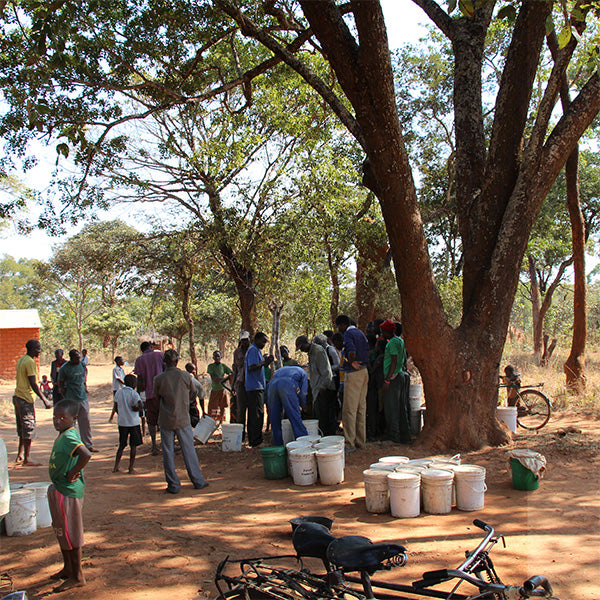
Tropical forest honey is one of the most delicious and complex tastes on the planet. In southern Africa the forests are called Miombo Woodlands and are semi-arid, diverse forests with thousands of plants species. Those plants impart complex flavours that most people find are as sophisticated and varied as fine wines or spirit. One of our customers calls our honey “the single malt whisky of honey!”
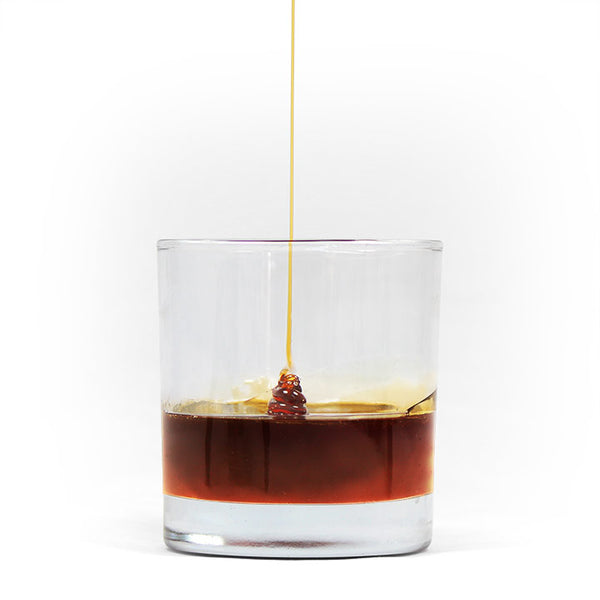
Dan and the beekeepers work hard to make sure that our organic African Bronze Honey is truly a world-class product. Certified organic by EcoCert. An epicurean delight produced in a pristine wilderness by local people. We call it ‘Empowerment in a bottle!’
We think you'll find African Bronze Honey to be your 'go to' honey. Try some today, and remember that a percentage of every sale goes back to support sustainable beekeeping in Africa!
